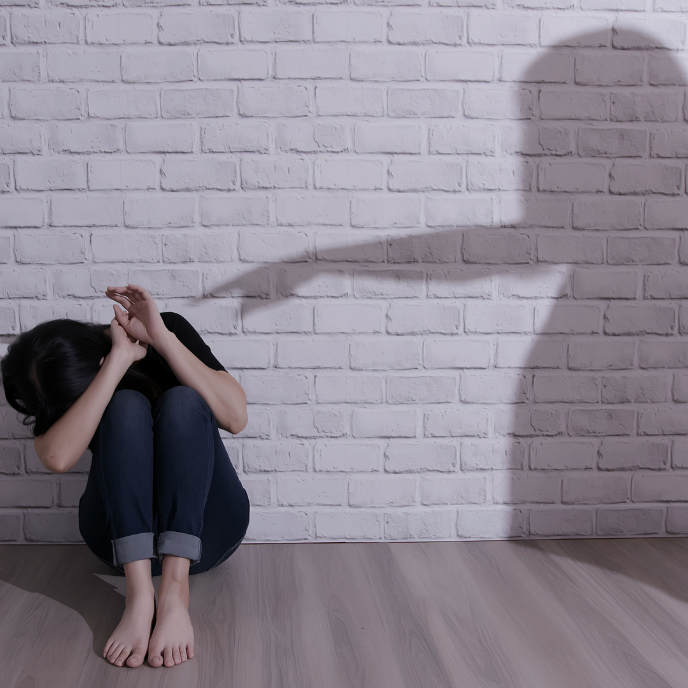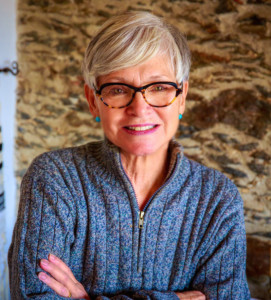Aging Jewishly – What Our Traditions Teach Us about Growing Old
By Rabbi Barbara Aiello
It started with pennies but at first my dear friend’s teenage daughter didn’t take it seriously. After all, the boy who was throwing pennies at her couldn’t even get the insult right. “He’s calling me a KITE,” said the girl. “That’s how stupid he is. He doesn’t even know what to say!” As a Jewish mother my friend’s reaction was swift. She wanted to march into the principal’s office and put a stop to this antisemitic harassment but her daughter would have none of it. “Don’t make a big deal in front of my friends,” the daughter pleaded. “Just let it go.” Respecting her daughter’s wishes, the mom did not confront the school administration but from time to time her daughter was showered with pennies and taunted as a “Kite.”
Rewind the tape to 1957 and I am a little girl of ten walking home from school with my friends. My cousin Rebecca, two years younger, holds hands with two friends and skips ahead. They pass a brick wall and standing on the ledge are several teenage boys. It is a warm April afternoon and near to what in those days was called Holy Week or Easter Vacation. The boys on the ledge, each holding a mud pie, begin to pelt Rebecca. They shout, “This is for you, Jew girl. You Jews killed Jesus.” Screaming and covered in mud, Rebecca runs back toward me while our girlfriends flee the scene. As I turned to look after them, a neighbor lady watching from her window drew her curtains closed. Frightened and dirty, Rebecca and I stood there alone.
My last name is “Aiello.” It is one of the oldest Italian Jewish surnames but this fact is virtually unknown in North American where Ashkenazi Jews whose ancestors hail from Eastern European countries like Russia and Poland predominate. We Sefardi Jews from Mediterranean countries are a minority within a minority and a surname like Aiello is not readily recognized as Jewish.
In fact throughout my life people would say to me, “Aiello, that’s an Italian name. If you’re Italian you can’t be Jewish.” As I got older I realized my Aiello surname was my ticket into the non-Jewish world – especially in the early days of a new job or a new neighborhood. Amazingly I had a window on antisemitism that few Jews experience firsthand.
What I mean is that if your surname was Cohen or Greenblatt or Rosenfeld, for example, some people would be cautious about what they might say about Jews in your presence. After all, those names and dozens of other Ashkenazi surnames are red flags that your co-worker or neighbor would recognize as Jewish – a recognition that would often hold an antisemitic attitude at bay. Not so with Aiello. Since the assumption was that I was Italian and could not be Jewish, I was introduced to a world of antisemitism that few Jews ever see.
During one period of my adult life I supported myself by working in a Call Center. It was a highly competitive job and each day the highest sales were posted. I recall how one colleague said to me, “At least we’ve got you in the top five, all the others are Jews.” I asked what that meant and the colleague continued, “Jews are all about money. That’s all they think of.”
To my eternal shame I kept my ethnicity a secret and as a result I continued to observe antisemitism up close and personal.
It didn’t take long. Sure enough at the Christmas season it started again. “It really gets me how Jews don’t celebrate Christmas. I guess it’s because they don’t believe In God.” Still tight-lipped about my religion I finally blew my cover when the subject of the Holocaust came up. “When are those Jews going to get over it?” one colleague asked. “They love being victims,” another said. It was at that moment that the incident with the boys on the ledge came back to me in full force. With tears in my eyes I said, “You have no idea of what it means to be a Jew.”
So what’s the end of the story? Antisemitism in the form of “money-grubbing Christ killers”, and worse is still with us but ignoring the bullies or remaining silent is no longer an option. The difference is that now, with mass communication and social media, words of hate can turn quickly into viscous hate crimes. Couple that with the fact that slowly but surely we are losing the last eyewitnesses to the greatest hate crime of all.
Children living today represent the last generation that will have the opportunity to meet a Holocaust camp survivor face to face. The remaining Holocaust generation, the child survivors, will be the ones to share their stories of what it was like to be hidden, lost or abandoned – important experiences indeed – but the stories of survival in Hitler’s mechanized death factories will no longer be told by the eye witnesses themselves.
For me it was mud-slinging in the literal sense. For my friend’s daughter is was pennies. . And what of those who observed these antisemitic incidents? The other students in the hallway who scattered as the pennies hit the floor, the lady in the window who closed her curtains, the friends that ran away and left a little girl crying all alone.
It took my behavior with my colleagues at the Call Center to remind me of what Philosopher Edmund Burke said about evil; “The only thing necessary for the triumph of evil is that good men should do nothing.” I came face to face with my own fears and despite the consequences, real or imagined, never again did I conceal my identity. For if I did, although I am a Jew, I would be no better than the students who ran from the hail of pennies or the lady at the window who saw our mud soaked clothing and drew the blinds.
It is sometimes awkward but when asked to repeat my last name now I say, “It’s Aiello, one of the oldest Italian Jewish surnames.” And when the response is “But if you’re Italian how can you be Jewish?” I take the time to explain.
Over the years I’ve learned that what is required is constant vigilance and if the October Massacre tells us anything it is that there’s still so much work to be done. Jew hatred that leads to violence against Jews didn’t begin with internet postings, or with something this or that celebrity or academic said. Antisemitism began eons ago when religious differences were perceived as fair game for bullies and when those who witnessed our debasement, humiliation and suffering simply turned away. “See something. Say nothing” gave our persecutors a free hand to up their game. And for millenia that’s just what they did, until the cruelest alarm was sounded on October 7. Never Again starts now.
For ten years Rabbi Barbara Aiello served the Aviva Campus for Senior Life as resident rabbi. Currently as Rabbi Emerita she shares her experiences on Aging Jewishly. She is also program host of the 17 year Radio Rabbi program, airing Fridays at 7 pm and Saturdays at 1 pm and streaming live at 1490wwpr.com. Contact her at Rabbi@RabbiBarbara.com

